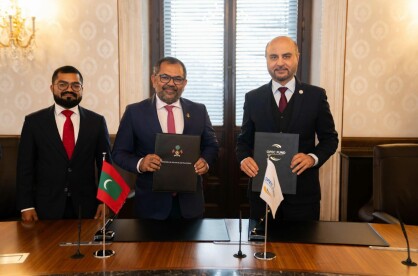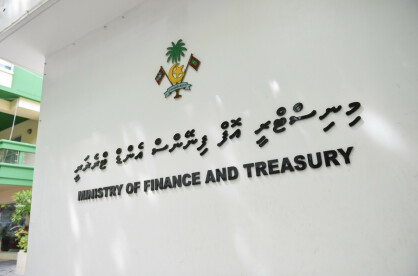As the Maldives faces mounting economic challenges, the current administration has prioritized strategies to boost financial stability and address its debt crisis. The current administration, led by President Dr Mohamed Muizzu took over the administration during a time when the Maldives had found itself in a major debt crisis, leading to one of the main targets of the current administration handling the debt of the country with proper implementation of measures that had been discussed as well as bringing in fiscal reform.
Some of the most noteworthy initiatives that the administration has challenged itself with include restructuring State Owned Enterprises (SOEs), deferring foreign loan payments, introducing new foreign exchange rules aimed to tackle the U.S. dollar flow issue as well as implementing new tax reforms that will bring positive revenues in the coming year. Among these efforts, a significant move by the Maldives Monetary Authority (MMA) to bolster foreign reserves through a currency swap agreement with India stands out as a key step toward strengthening the nation's economic resilience.
In October 2024, MMA's foreign reserves surged to USD 614.6 million, up from USD 371.2 million in September. This boost largely stemmed from a USD 400 million currency swap arrangement with the Reserve Bank of India (RBI), designed to support the Maldives' fiscal health and stabilize its currency amid growing economic pressures. This exchange also came during a time when Maldives was facing immense pressure, not just locally but globally. In September of 2024, the Maldives was faced with the possibility of Maldives’ Sukuk being at risk of becoming the country’s first bond to default. With these fears looming large, as international and local media headlines covered the harsh possibilities that the Maldives could be facing, MMA was noted to be negotiating the USD 400 million currency swap arrangement with India - which was a crucial move that is now showcasing the bolstering of reserves in the Maldives and ensuring that the Government could meet its financial obligations.
To balance growth and support the domestic financial sector, MMA allocated USD 120 million of its newly enhanced reserves to local commercial banks. This decision reflects a shift in strategy, as MMA traditionally invests reserves in international banks for returns. By placing these funds domestically, MMA aims to both generate returns and promote stability within the Maldives’ economy.
Detailed in MMA’s publicly available Monthly Statistics Table 12, the foreign currency acquired through the RBI swap appears under “official reserve assets.” In contrast, the USD 120 million directed to local banks is categorized as “deposits not included in official reserve assets” since it remains within the Maldives’ banking system. Additionally, MMA’s report records USD 122.5 million in other foreign currency assets, adding further to the country's total foreign currency holdings.
A noteworthy change in how reserves are calculated also reflects MMA's adaptive approach under the current economic climate. The updated measure of "usable reserves" now includes “official reserve assets,” “other foreign currency assets,” and “predetermined short-term net drains,” offering a more comprehensive perspective on available reserves.
Despite these gains in official reserves, MMA reported that usable reserves currently stand at USD 31.5 million, factoring in the USD 120 million allocated domestically.
While these strategic measures by the MMA have significantly strengthened the reserve base, there remains further ground to cover to ensure long-term economic resilience and stability. The administration's ongoing efforts throughout the past year have reflected a commitment to restoring fiscal balance and navigating the path toward a more sustainable financial future for the Maldives.






